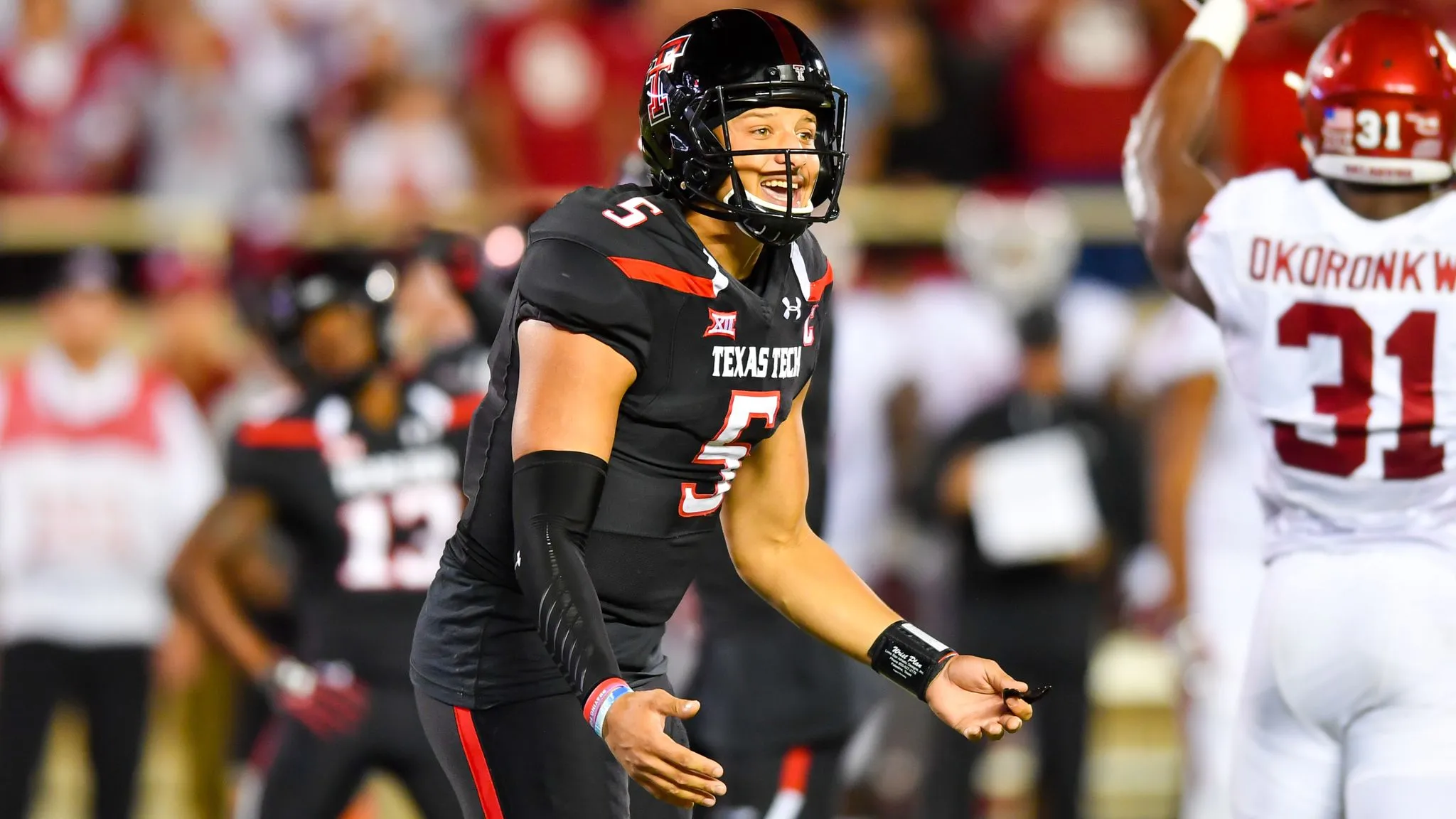Top-Stories
Miami dolphins Grant Dubose Injury Video Goes Viral

Miami Dolphins wide receiver Grant DuBose suffered a harrowing injury during a game against the Houston Texans, leaving fans and players shaken. The incident occurred when Texans safety Calen Bullock delivered a dangerous head-to-head hit on the defenseless receiver as he ran an inside route. The collision was severe enough for officials to flag Bullock for a 15-yard unnecessary roughness penalty, but the damage had already been done. DuBose remained on the ground for over 10 minutes, requiring immediate medical attention before being stretchered off and taken to a nearby hospital. The sight of him lying motionless on the field left both teams visibly distressed, with the Dolphins gathering in prayer around their injured teammate.
As medical staff worked on DuBose, slow-motion replays of the hit circulated on social media, sparking outrage among fans and commentators. The severity of the impact reignited debates about player safety in the NFL and the league’s handling of dangerous tackles. Many viewers expressed disbelief that such reckless plays still occur in an era where the focus on protecting players has intensified. A fan captured the shared sentiment, saying, “I can’t understand how the players can witness Grant DuBose’s injury and nearly losing his life on the field, yet find the strength to continue playing.”
Here is a slowed down angle of #Dolphins WR Grant DuBose and the hit that caused a 12 minute stoppage and DuBose being carted off the field.
The head snap at the end is tough to watch. pic.twitter.com/IZCkBxaIHc
— Ride The Pine (@RTPSports) December 15, 2024
Grant DuBose’s journey to the NFL added another layer of heartbreak to the incident. During the pandemic, the receiver worked three jobs, including bagging groceries at Walmart, while playing Division II football. His relentless determination and hard work eventually earned him a place at the University of North Carolina at Charlotte, where his exceptional performances caught the attention of NFL scouts. For fans familiar with his inspiring story, the sight of him being carted off the field was deeply emotional. Many took to social media to share their prayers and support, with messages pouring in from across the football community.
The emotional weight of the injury was felt throughout the stadium. KPRC’s Chancellor Johnson, who covered the game, remarked, “This is the longest I’ve ever seen a game delayed because of an injury. The entire Dolphins team was circled in prayer. An emotional scene at NRG as Grant DuBose was carted off the field.” However, not all reactions were empathetic. Some Texans fans drew criticism for their behavior during the delay. One fan voiced their frustration, noting, “That hit on Grant DuBose really brought out the worst in the Texans fanbase. Can’t say I’m surprised after they defended one of the dirtiest hits in recent memory.”
As fans waited anxiously for updates, the Miami Dolphins’ social media team provided a reassuring statement, confirming that DuBose was alert and in stable condition at the hospital. Shortly after, Tyreek Hill shared another positive update during his post-game interview, saying, “The word is, he’s in good spirits right now. He’s moving.” These updates offered a sigh of relief to the NFL community, though the memory of the incident lingered.
The Texans ultimately won the game 20-12, but the victory was overshadowed by the grim reality of what had transpired on the field. For many, the result felt secondary to the chilling moment when DuBose was stretchered away, his career—and perhaps his life—seemingly hanging in the balance. The incident sparked fresh debates about whether current safety protocols and penalties are sufficient to deter such dangerous plays. Bullock’s penalty, though immediate, felt inadequate in the face of the potentially life-threatening consequences of his actions.
The outpouring of support for DuBose has been a testament to the unity within the NFL community. Fans, players, and coaches across the league have rallied behind the wide receiver, sharing messages of hope and encouragement for his recovery. For a player who has overcome incredible odds to reach the NFL, this setback is another challenge that he will undoubtedly face with the same resilience and determination that defines his journey.
As the NFL reflects on this incident, the need for stricter measures to ensure player safety becomes more urgent. For now, the focus remains on DuBose’s recovery and the hope that he will return stronger than ever. His story of grit and perseverance has already left an indelible mark on the sport, and his comeback, when it happens, will be a moment of triumph not just for him but for all who admire his relentless spirit.
Top-Stories
Yellowstone Season Finale Recap

The series finale of Yellowstone lands with an underwhelming thud, offering closure in a way that feels more predictable than profound. Titled “Life Is a Promise,” the episode ties up loose ends and provides character send-offs, but its attempts at resolution lack emotional depth. It’s not a disaster of a finale, but it’s a far cry from what one might hope for when bidding farewell to a show that once captivated its audience.
The episode begins with a self-indulgent moment typical of creator Taylor Sheridan’s style, featuring one last jovial tale from Travis, who gathers laughs from the cast in a scene that feels more for Sheridan’s satisfaction than the audience’s. This misplaced levity sets the tone for a finale that struggles to strike the balance between meaningful closure and surface-level resolutions.
The first half of the episode is dedicated to wrapping up the stories of secondary characters, most of whom are given tidy, if uninspired, exits. Teeter, Jake, Ethan, Lloyd, Walker, and Ryan all head off on separate paths, reflecting their individual journeys but failing to evoke much sentiment. Teeter’s decision to work for Travis and Lloyd’s choice to remain in West Yellowstone make sense for their characters, but these moments lack the emotional weight to leave a lasting impression. Similarly, Walker’s move to join Laramie on the rodeo circuit and Ryan’s reunion with Abby after a Lainey Wilson performance feel like rushed afterthoughts. These conclusions are serviceable but fail to resonate in the way finales often should.
One of the most notable subplots, Chief Rainwater’s dealings with the pipeline, gets a hurried resolution. Materials for the project are dumped into a reservoir, a symbolic yet impractical act that raises more questions than it answers. While Rainwater’s passionate defense of the land as sacred is consistent with his character, the show’s inconsistent portrayal of him as either an ally or antagonist undermines the moment. His victory in acquiring the Yellowstone ranch comes with Kayce’s agreement to sell it at a meager price, on the condition that his family can remain at East Camp and the land remains undeveloped. Rainwater’s commitment to honoring this promise feels genuine, but the show sidesteps any realistic exploration of the implications.
Kayce’s decision brings closure to his long-running internal conflict between family and ranch life, but the payoff is subdued. The finale leans on visual symbolism, like a vision of a wolf digging a den, to underscore his newfound peace. While this works as an ending for Kayce, it does little to elevate the episode as a whole.
The emotional centerpiece of the finale is John Dutton’s funeral, which doubles as a farewell to the Yellowstone ranch itself. However, the scene lacks specificity and fails to deliver the catharsis one might expect. Rip, arguably John’s closest confidant, has little to say beyond assurances to Beth, leaving a void where a deeper reflection on their bond could have been. Beth’s grief manifests in a predictable combination of drinking and anger, culminating in a whispered promise of revenge over her father’s coffin. The lack of nuance in these moments underscores the episode’s broader issues with emotional depth.
The final confrontation between Beth and Jamie is perhaps the most anticipated moment of the series, but even this climactic showdown feels hollow. Jamie, as always, is portrayed as pathetic and powerless, even when he briefly gains the upper hand. While Beth’s ultimate victory over her brother ties up their toxic rivalry, it lacks the dramatic tension and emotional complexity that could have made it truly impactful. Instead, it feels like a perfunctory conclusion to a conflict that had long grown stale.
The dismantling of the ranch house in the closing scenes is one of the few moments that captures a sense of loss and transition. Rainwater’s reaction, paired with a voiceover from Elsa Dutton of 1883, offers a fleeting glimpse of the themes of land and legacy that once defined the show. However, even these poignant elements are overshadowed by the show’s failure to engage with the deeper implications of its storylines.
Ultimately, the finale encapsulates the decline of Yellowstone in its later seasons. What was once a gripping exploration of family, power, and the American West has become a series stretched thin by its creator’s divided attention. The finale serves as a reminder of the show’s peak, but also of its missed potential. While Yellowstone may hold a special place in the hearts of its fans, its concluding chapter does little to solidify its legacy as a modern television classic.
Top-Stories
Simone Biles: Net Worth 2024| Jonathan Owens| Dating History

Simone Biles is a legendary gymnast, often called the greatest of all time (GOAT). She has won more medals than any other gymnast, even receiving the prestigious Presidential Medal of Freedom. This week, she made her much-anticipated return to the gymnastics mat.
Net Worth 2024
In 2024, Simone Biles is estimated to have a net worth of $16 million.
And for the 2016 Rio games, per Forbes:
- $25,000 for each gold medal
- $15,000 for each silver medal
- $10,000 for each bronze medal
Jonathan Owens
Top-Stories
Kenny Wallace Reveals Substantial Annual Investment in NASCAR Insurance

Renowned former NASCAR Cup and Xfinity series driver, as well as prominent broadcaster, Kenny Wallace recently engaged with fans on December 22nd, delving into various topics surrounding NASCAR. One significant revelation during this interaction was Wallace shedding light on the substantial financial commitment he made towards insurance during his tenure as a premier stock car racer.

Insurance Breakdown: A $150,000 Annual Expenditure
Responding to inquiries from fans, Wallace disclosed that he annually allocated a staggering $150,000 to meet the insurance requirements associated with participating in NASCAR races. The comprehensive coverage included Disability Insurance, family insurance, auto insurance, and even golf-kart insurance, a mandatory aspect dictated by the race tracks themselves. Notably, the financial burden was further compounded for drivers managing additional personal employees.
“To pilot a race car in the demanding realm of NASCAR, I had to secure Disability Insurance and workman’s comp. In addition, standard family health insurance, auto insurance, and golf cart insurance – a prerequisite imposed by the race tracks. At times, my annual expenditure exceeded $150,000, especially when factoring in other expenses such as transportation, loans, and personnel salaries,” remarked Wallace.
NASCAR’s Distinct Insurance Approach
Contrary to conventional practices in other sports leagues, NASCAR adopts a unique stance on insurance provision. Notably, the sanctioning body does not extend insurance coverage to its drivers, citing their distinct classification as Independent Contractors rather than employees.
“NASCAR Cup drivers operate under an Independent Contractor arrangement, absolving the organization of any legal obligation to furnish insurance coverage. Despite the inherent risks associated with every race, NASCAR’s policy positions drivers as independent entities rather than direct beneficiaries of employer-provided insurance,” elucidated Wallace.
This departure from the traditional employer-employee relationship in other sports leagues has implications for driver responsibility, requiring them to independently navigate insurance matters, a distinctive feature within the high-stakes world of NASCAR.
Also Read:- Kenny Wallace Reveals Substantial Annual Investment in NASCAR Insurance
-

 Sports Education3 years ago
Sports Education3 years agoDarts Player Michael Smith: Tattoo Meaning, Hair Beard Natural, Kids, Parents
-

 Sportsperson3 years ago
Sportsperson3 years agoPatrick Mahomes: Diabetes, Whats on Arm, Left arm Bump, Grim Reaper
-

 Sportsperson3 years ago
Sportsperson3 years agoCody Rhodes: Theme Song, Kingdom Lyrics, Entrance, Kingdom WWE
-

 Sports Drink3 years ago
Sports Drink3 years agoPrime Drink Net Worth 2023, Revenue Company, Price & Value
-

 Jockey3 years ago
Jockey3 years agoMeet Jamie Kah Ben Melham Relationship, Partner, Husband, Wife, More
-

 Sportsperson3 years ago
Sportsperson3 years agoJimmy Hayes: Cause Of Death, Autopsy, Wife, Family, Net Worth
-

 Football3 years ago
Football3 years agoErling Haaland Religion: Father, Net Worth, Salary, Bio
-

 Featured3 years ago
Featured3 years agoEpic Games Free Games December 2021: List, Leak, Reddit


